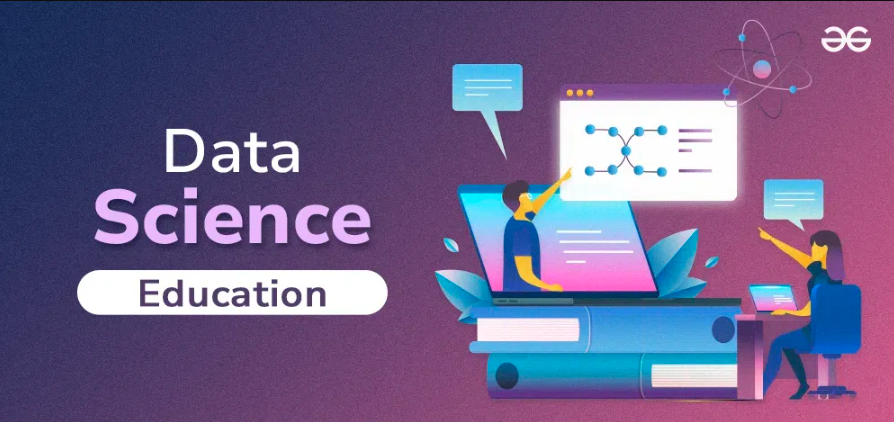In the modern age, data is being generated at an unprecedented rate. From social media interactions and online transactions to sensor data and machine logs, the sheer volume of information being created is staggering. This explosion of data, commonly referred to as Big Data, presents both incredible opportunities and significant challenges for data scientists. While the potential to derive insights and drive innovation is immense, the complexities involved in managing, processing, and analyzing Big Data are equally daunting. For those looking to build a strong foundation in managing Big Data, enrolling in a data science course in Pune is a valuable step. As we delve into the era of Big Data, understanding the challenges faced by data science professionals is crucial for anyone looking to excel in this field.
The Complexity of Handling Vast Data Volumes
One of the most significant challenges in the era of Big Data is simply dealing with the sheer volume of information. Traditional data processing tools and methods struggle to keep up with the vast quantities of data generated every second. Data scientists must now work with petabytes and exabytes of data, far beyond what conventional databases and systems were designed to handle.
This volume challenge is compounded by the need for real-time processing. In many cases, businesses require insights as data is being generated, making it necessary to process and analyze information on the fly. Achieving this level of responsiveness demands cutting-edge technologies such as distributed computing frameworks, cloud-based platforms, and advanced algorithms. However, implementing these solutions requires specialized knowledge and expertise, making it essential for data scientists to continually update their skills.
Such courses offer comprehensive training in the tools and techniques required to navigate the complexities of Big Data, equipping professionals with the skills needed to tackle the challenges of this ever-evolving landscape.
Data Quality and Integrity Issues
As the volume of data grows, so too does the challenge of ensuring its quality and integrity. Big Data is often characterized by its variety, encompassing structured, semi-structured, and unstructured data from diverse sources. This variety can lead to inconsistencies, redundancies, and errors, all of which can compromise the accuracy of analysis.
Data cleaning and preprocessing are crucial steps in the data science pipeline, but they become increasingly challenging as data sources multiply. Identifying and correcting errors, handling missing values, and ensuring consistency across datasets are time-consuming tasks that require meticulous attention to detail. Moreover, with the rise of automated data collection methods, the risk of ingesting flawed or biased data has never been higher.
Addressing these data quality issues requires robust validation processes and the use of advanced tools designed to detect and rectify anomalies. Data scientists must also be vigilant about the sources of their data, ensuring that it is reliable and representative. This challenge underscores the importance of ethical data practices, as poor data quality can lead to flawed conclusions and potentially harmful decisions.
Scalability and Performance Optimization
Scalability is another significant challenge in the era of Big Data. As datasets grow, the computational resources required to process and analyze them increase exponentially. Data scientists must design systems that can scale efficiently, handling larger workloads without sacrificing performance.
Performance optimization is closely tied to scalability. Efficient algorithms, parallel processing, and optimized code are essential to minimize latency and ensure that analyses can be completed within a reasonable timeframe. However, achieving this level of optimization is no small feat. It requires a deep understanding of both the data being processed and the underlying hardware and software infrastructure.
Read also: Why Generative AI is a Must-Learn Skill for Working Professionals Today
To overcome these challenges, data scientists often rely on distributed computing frameworks like Apache Hadoop and Apache Spark. These platforms allow for the parallel processing of massive datasets across clusters of machines, significantly enhancing scalability and performance. However, mastering these tools requires specialized training and experience, highlighting the need for continuous learning in the field of data science.
Data Privacy and Security Concerns
With great data comes great responsibility. The era of Big Data has brought with it heightened concerns about data privacy and security. As organizations collect and analyze vast amounts of personal information, the risk of data breaches, unauthorized access, and misuse increases significantly.
Data scientists must navigate a complex landscape of regulations and ethical considerations when handling sensitive data. Compliance with laws such as the General Data Protection Regulation (GDPR) in Europe and the California Consumer Privacy Act (CCPA) in the United States is mandatory. These regulations impose strict requirements on data collection, storage, and processing, with severe penalties for non-compliance.
Ensuring data privacy and security involves implementing robust encryption, access controls, and anonymization techniques. However, these measures can introduce additional complexity into the data science workflow, potentially affecting performance and scalability. Balancing the need for comprehensive security with the demands of Big Data analysis is a constant challenge that requires careful planning and execution.
The Skills Gap in Data Science
The rapid growth of Big Data has led to an equally rapid increase in demand for skilled data scientists. However, there is a significant skills gap in the industry, with many organizations struggling to find professionals who possess the expertise needed to manage and analyze Big Data effectively.
The skills required for Big Data analysis go beyond traditional data science competencies. In addition to proficiency in programming languages like Python and R, data scientists must be familiar with distributed computing, cloud platforms, and advanced machine learning techniques. They must also be adept at working with large-scale databases and have a strong understanding of data governance and ethics.
For those looking to bridge this skills gap, enrolling in a data scientist course can be an excellent choice. Pune is home to several leading educational institutions that offer specialized programs in data science, providing students with the knowledge and practical experience needed to thrive in the Big Data era. By completing such a course, aspiring data scientists can position themselves at the forefront of this rapidly evolving field.
Revolution of Big Data
As we look to the future, it’s clear that the challenges of Big Data will continue to evolve. The increasing complexity of data, the need for real-time analysis, and the growing importance of data privacy and security will all shape the future of data science. To succeed in this environment, data scientists must remain adaptable, continually updating their skills and embracing new technologies.
The challenges of Big Data are significant, but so are the opportunities. For those willing to invest in their education and stay ahead of industry trends, the rewards can be substantial. By mastering the tools and techniques needed to navigate the Big Data landscape, data scientists can unlock new insights, drive innovation, and make a meaningful impact in their organizations.
Contact Us:
ExcelR – Data Science, Data Analyst Course Training
Address: 1st Floor, East Court Phoenix Market City, F-02, Clover Park, Viman Nagar, Pune, Maharashtra 411014
Phone Number: 096997 53213
Email Id: Enquiry@excelr.com











